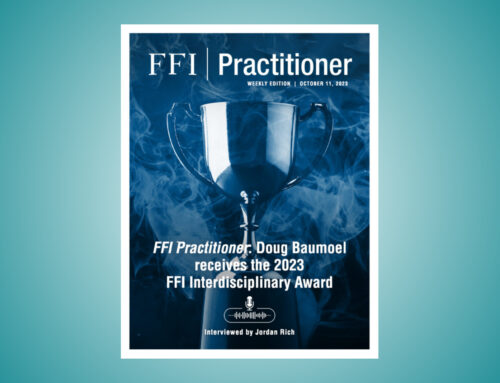Separate Coaches, Shared Vision
Why Parallel Coaching Beats Group Coaching for Family‑Led Enterprises
By Perry Gladstone and Doug Baumoel
Estimated read time: 3 mins
Family enterprises that share ownership and leadership have diverse talent and a minefield of invisible emotional, relational, and systemic dynamics. Too often, legacy patterns of communication, power, and conflict are masked by formal titles or business performance. And too often, traditional one-coach-fixes-the-team approaches fall short.
There’s a better way: Parallel Coaching, where each owner-leader works privately with their own coach, while those coaches collaborate behind the scenes. This model, grounded in contemporary research and field-tested by leading family business consultants and advisors[1][2][3], honors individuality while aligning family leaders overall[10].
The Power of Parallel Coaching
Group coaching may sound efficient━paying one coach to serve many. But, it often compounds the very problems it seeks to solve: role confusion, historical baggage, power imbalances, and the blurred lines between leadership, ownership, and family identity. This is further exacerbated when the coach lacks training in family business consulting, making it even more likely they will get sucked into the family business system conflict vortex.
In contrast, parallel coaching with an appropriately trained coach allows each owner-leader to:
- Safely explore their own beliefs, blocks, and leadership habits
- Navigate their unique role across business, ownership, and family systems
- Develop clarity, resilience, and self-awareness without performing for the group
- Be met exactly where they are, with strategies tailored to their developmental stage and operating style
Why It Works: Five Reinforced Truths
- Confidentiality Enables Truth-Telling
Private coaching creates space to surface legacy issues, such as sibling rivalry, succession trauma, or spousal influence, that are unlikely to emerge in group settings. Psychological safety is a prerequisite for meaningful progress[6]. - Power Dynamics Are Leveled, Not Amplified
Group coaching often reinforces pre-existing hierarchies, whether rooted in age, equity, title, or personality. Parallel coaching provides each owner-leader a neutral, dedicated space to build agency and influence. This is especially vital where formal and informal power structures are misaligned[8]. This tension is core to family-led enterprises, where formal authority and emotional legacy often clash. As Gladstone notes, “You can be more than one thing … Real leadership lives in that tension.” Parallel coaching helps each owner-leader navigate this duality without losing ground to inherited roles or invisible loyalties[9]. - Systemic Conflict Is De-Triangulated
As Baumoel’s Conflict Equation shows, conflict in family enterprise is systemic. A single coach risks becoming triangulated, pulled into relational roles they cannot safely occupy[1]. - Parallel Tracks Build Governance Momentum
Insights from individual coaching feed into council and board discussions when coaches share anonymized observations confidentially[4]. - Tailored Support Yields Real Growth
Each owner-leader’s journey through succession, role transition, or personal development is unique. Group formats can’t account for these variations[5].
Designing a High-Impact Parallel Coaching Engagement
| Phase | What Happens | Best Practice |
|---|---|---|
| Joint Charter | All owner-leaders and coaches co-create norms and guardrails. | Define team vs. individual goals; clarify confidentiality protocols. |
| Private 1-on-1 Coaching | Each owner-leader works with their own coach. | Shared assessments (e.g., Kolbe) help align behind the scenes. |
| Coach Collaboration | Monthly coach-only huddles. | Coaches compare anonymized themes, coordinate next steps. |
| Quarterly Summits | A rotating coach facilitates joint meetings. | These apply- not replace- the personal work. |
| Annual Review | Review enterprise health, coaching ROI, and trust metrics. | Align with formal governance and succession benchmarks. |
When Group Sessions Help And When They Don’t
Group sessions do have value, but only as applications of the personal work. Facilitated family meetings to share and integrate learnings, as well as skills development, such as co-presenting a strategic plan or managing stakeholder dialogue (which further benefits from joint rehearsal), must be intentionally designed and never treated as replacements for individualized coaching.
Conclusion
Family-led enterprises succeed when their leaders do the inner work separately. As Matthew Wesley observes, Groupness relies on individual wholeness[7]. The parallel coaching model reflects that truth. It gives each leader the space to grow, while creating a container in which unity can emerge naturally, rather than being forced.
When each family leader is seen, supported, and strengthened individually, the enterprise they lead becomes greater than the sum of its parts.
References
- Baumoel, D. & Trippe, B. (2016). Deconstructing Conflict: Understanding Family Business, Shared Wealth and Power. Continuity Media.
- Grubman, J., Jaffe, D. T., & Keffeler, K. (2022). Wealth 3.0: From Fear to Engagement for Families and Advisors. Trusts & Estates.
- Hughes, J. E. Jr. (2004). Family Wealth: Keeping It in the Family. Bloomberg Press.
- Jaffe, D. T. (n.d.). Governance: Building a Culture of Family Sustainability.
- Labaki, R. (2024). In times of succession: Leading the family business without misleading stakeholders. EDHEC Vox.
- Losch, S., Traut-Mattausch, E., Mühlberger, M. D., & Jonas, E. (2016). Comparing the Effectiveness of Individual Coaching, Self-Coaching, and Group Training. Frontiers in Psychology, 7:629.
- Wesley, M. (2024). Fostering a Strong Culture to Achieve Lasting Family Unity. Family Office Exchange Podcast.
- Eddleston, K. A. (2025). Why one out of three family businesses is inherited by the wrong person. Northeastern Global News.
- Gladstone, P. (2013). FAST & HOT: How to Open Hearts, Win Minds and Create a Better Life in Business. Storymine Press.
- Baumoel, D. & Gladstone, P. (2025). “Parallel Coaching for Partner-Led Family Enterprises.” LinkedIn
Stay in the Know
Get our latest articles, tips, and insights delivered straight to your inbox.
Share this Insight, choose your platform!
About Us
Continuity Family Business Consulting is a leading advisory firm for enterprising families. Using a full suite of service capabilities, we help families prevent and manage the single greatest threat to family and business continuity: conflict. It is through this lens that we advise our clients and build customized strategies for succession planning, corporate governance, family governance, and more. We help families improve decision making, maximize potential and achieve continuity. To inquire, contact us.












